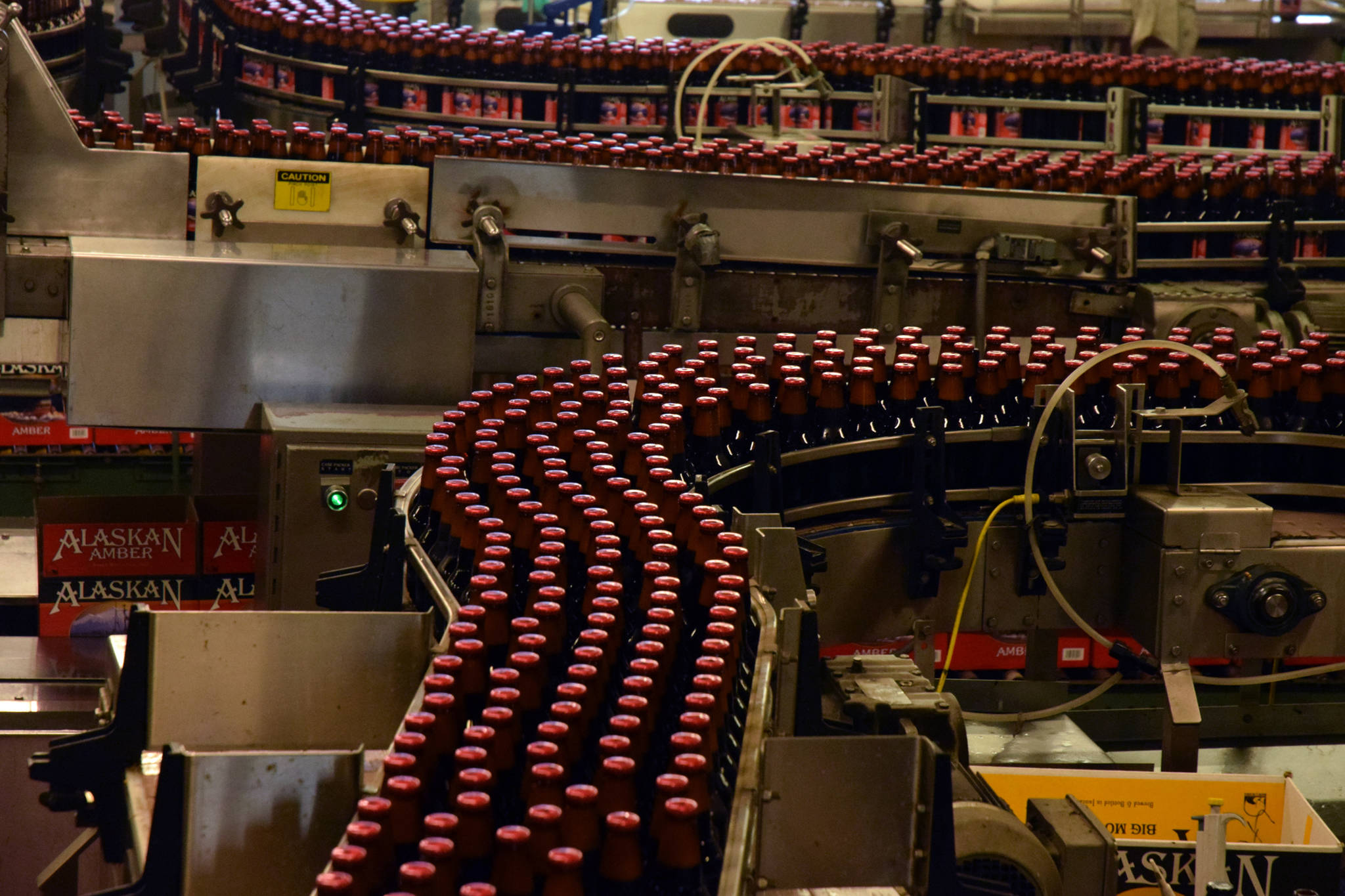The state of Alaska is spending $3 million per year on beer. That fact won’t change until at least 2018.
On Wednesday afternoon, the Alaska House Labor and Commerce Committee heard an analysis of a little-known tax break that benefits small breweries that sell beer in Alaska.
“We have options from completely eliminating the reduction … to somewhere in between or not touching it at all. That’s where we’re at as a committee,” said Rep. Sam Kito, D-Juneau and chairman of the Labor and Commerce Committee.
Under the exemption, breweries considered “small” under federal tax codes pay state taxes at about one-third the usual rate.
Instead of $1.07 per gallon, they pay 35 cents per gallon on the first 1.86 million gallons of beer they sell in Alaska.
The interstate commerce clause of the U.S. Constitution requires the state to offer this break to out-of-state brewers as well as Alaska’s 30 homegrown operations. (Another nine breweries are in planning here.)
“The original intent was to carve out the beer brewed in-state,” said state tax director Ken Alper, but Alaska ran against the Constitutional limits.
The tax break applies only to beer sold in Alaska, not beer produced in Alaska and sold elsewhere. Alaskan Brewing Co., for example, doesn’t pay Alaska taxes on beer it sells Outside. Instead, it pays Washington taxes in Washington, Oregon taxes in Oregon, and so on.
According to an analysis from the Alaska Department of Revenue, just over $3 million of reduced-tax beer was sold in Alaska in 2016. Of that figure, Alaska breweries sold $1,325,900, and Outside breweries sold $1,680,300.
This is the first time state officials have identified how much of Alaska’s beer comes from Alaska breweries versus Outside ones. The state’s ordinary tax reports make no distinction.
Wednesday’s discussion came about after Rep. Paul Seaton, R-Homer and chairman of the House budget subcommittee for the Alaska Department of Commerce, asked members to consider ending or reducing it.
With Alaska facing a $2.8 billion annual deficit, even small expenditures are coming under scrutiny.
Last year, Gov. Bill Walker proposed doubling Alaska’s alcohol taxes as part of a comprehensive plan to erase the statewide deficit. That proposal never gained traction, and it died at the end of the Legislative session.
This proposal would have a much smaller fiscal impact than that one, which would have made Alaska the No. 1 most expensive state in America when it comes to alcohol taxes.
Nevertheless, lawmakers aren’t currently considering changes to the brewery tax exemption.
Kito, speaking Wednesday evening and again Thursday, said no bill or amendment has been proposed to change the exemption.
Alaskan Brewing Co. — Alaska’s largest brewery and the only one producing more than 1.86 million gallons per year — is in Kito’s district.
“We don’t have any intent on doing anything more with this this year, but there may be opportunities for us to continue this discussion during the next session,” he said.
• Contact reporter James Brooks at james.k.brooks@juneauempire.com or call 419-7732.

